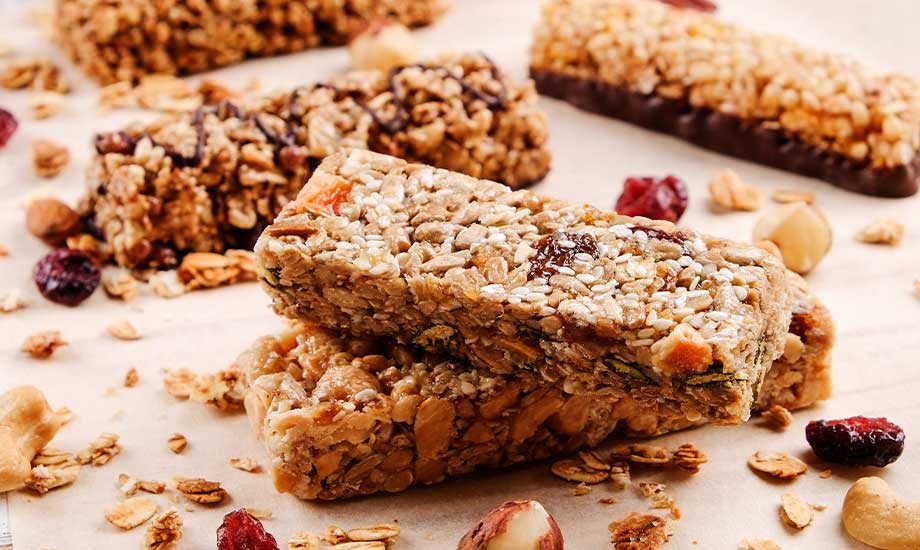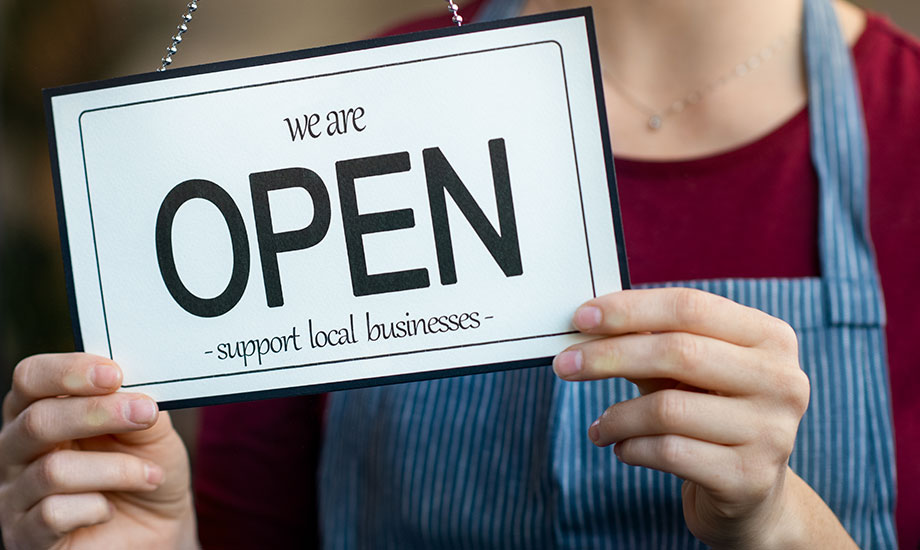Our planet provides us with everything we need to thrive, and we need to take care of it. Protecting our environment is fundamental in sustaining all life on earth, from ecosystems, to communities and economies and beyond. Earth Day is the largest secular observance in the world. It’s marked by more than a billion people every year as a day of action to change human behavior and create global, national, and local policy changes to protect our planet.
The modern, environmental movement, dubbed Earth Day, began in the US in 1970. Groups that had been fighting individually against oil spills, polluting factories, the loss of wilderness and more united on Earth Day around these shared values. In 1990, Earth Day became a global affair, mobilizing 200 million people in 141 countries and lifting environmental issues onto the world stage. And the momentum continues.
In the world of snacks and beverages, earth-friendly methods remain top concern of many manufacturers. Thus, many companies actively look for ways to reduce their carbon footprint and take the initiative to create avenues to improve the planet. Here are some of the top initiatives:
Regenerative farming practices
Kiss The Ground defines regenerative agriculture as taking a systems-based, holistic look at the land being stewarded and applying various principles with the goal of making the land more productive and biodiverse over time. In most situations, improving soil health and function is the key to improving productivity and biodiversity. One of the key components of healthy soil is organic matter, which is anything that is alive or was once living.
Utilizing Post-consumer recycled content
Post-consumer recycled content refers to finished goods that are used and then recycled. Standard post-consumer recycled content includes copy paper, shipping boxes, empty plastic bottles, and aluminum cans. Many of these items end up in a “single-stream” recycling bin (such as the blue bin you likely have at home or the office). This single-stream recycling is then collected by local recycling programs and brought to recycling facilities. They are sorted into bales of like material, which are then purchased to be broken or melted down and remanufactured. Learn more about post-consumer recycled content here.
Compostable packaging
Compostable packaging is made from a combination of various recycled, plant-based materials. Commonly, these include wood pulp, potato starch, bagasse, fungi, cotton and palm leaves. Compostable items disintegrate into non-toxic, natural elements. It also does so at a rate consistent with similar organic materials. Compostable products require microorganisms, humidity, and heat to yield a finished compost product (CO2, water, inorganic compounds, and biomass). Learn more about Biodegradable vs compostable here.
Water stewardship
Stewardship means the responsible planning and management of resources. Water stewardship is defined as using water in a way that is socially equitable, environmentally sustainable, and economically beneficial. This is achieved through a stakeholder inclusive process that involves site and catchment-based actions. Good water stewards understand their own water use, catchment context and shared risk in terms of water governance, water balance, water quality and important water related areas. With this understanding, water stewards engage in meaningful individual and collective actions that benefit people and nature.
In honor of Earth Day, we’d like to highlight offerings from the following eco-conscious brands who strive to help make the earth a better place for all.
Numi
Numi’s vision is to activate a chain of positivity and possibility that radiates far and wide through their products and practices. Numi was founded in 1999 in Oakland, California by brother and sister Ahmed Rahim and Reem Hassani with a vision to share the transformative, healing power of tea with the world. Creative, conscious change-makers, they have introduced little-known herbs and teas to the United States, while advancing human rights and sustainable causes around the globe.
Numi’s Tea Wrappers are Plant-Based Compostable, designed to reduce reliance on fossil fuels. Numi uses sustainably grown FSC® certified paper lined with sugarcane-based Non-GMO PLA and metalized eucalyptus. These plant-based materials ensure complete disintegration and no eco-toxicity when they break down.
They’ve also created Numi Foundation with the mission is to nurture and empower communities to thrive. Numi has also co-founded OSC Packaging collaborative to find compostable alternatives to petroleum-based plastic packaging. Numi has also partnered with Together for H2OPE, a nonprofit program bringing clean, safe drinking water to tea farming communities around the world.
Offerings Include: Numi Aged Earl Grey, Breakfast Blend, Chamomile Lemon, Ginger Lemon, Golden Chai, Gunpowder Green, Jasmine Green, Lemon Mate, Moroccan Mint, Rooibos, Rooibos Chai, Toasted Green Rice, Turmeric 3 Roots, Wellness Hibiscus & White Orange Spice Tea.
Alter Eco
Alter EcoCreates Organic chocolate that regenerates ecosystems, empowers farmers, and reverses climate change. good growing practices. Their products are grown in thriving ecosystems by small-scale, fair-trade farmers.
Alter Eco was founded in 2005 by friends and activists, Mathieu Senard and Edouard Rollet. Their goal was to bring delicious foods to conscious consumers, addressing issues of fair trade and environmental impact. In 2013, Alter Eco launched the first commercially compostable candy wrapper in their chocolate truffle product line which was a first of its kind.
Alter Eco launched the Alter Eco Foundation to further their commitment to combat climate change and inequality through regenerative agriculture. They are a Certified B Corporation and offset all of their emissions by protecting, planting, and restoring forests. Their next stop is Climate Positive!
Offerings Include: Dark Chocolate Sea Salt Truffles, Dark Chocolate Sea Salt Caramel Truffles
Uglies
Uglies kettle-cooked chips are crafted from potatoes with minor cosmetic imperfections. Potatoes that are too big, too small, blemished are destined for landfills. The Ugly Truth is that 26% of U.S. produce gets discarded for cosmetic reasons. That was, until Uglies arrived. As a result, Uglies has saved more than 5,000,000 pounds of potatoes.
Since 1945, the USDA Grades and Standards for Fruits and Vegetables has defined what is “perfect produce” to the fruit, vegetable and specialty crop growers and buyers. Although the standards are voluntary, produce that doesn’t meet these standards gets rejected. This both inflates the costs of produce and creates a massive amount of food waste. Controlling our food waste is the first step in creating a sustainable food system.
Uglies also donates 10% of all profits to Vivakids, a Pennsylvania charitable organization dedicated to fighting hunger globally.
Offerings Include: Uglies Kettle Chips Cheddar Sour Cream, Buffalo Ranch
Ocean’s Halo
Ocean’s Halo does their part to protect our oceans for future generations. That includes reducing plastic use and donating 1% for the Planet. With 1% for the Planet, Ocean’s Halo to donate at least 1% of their annual revenue to environmental organizations that promote ocean conservation. Ocean’s Halo donates to the Monterey Bay Aquarium Sea Otter Program which works on recovery of this iconic keystone species. Ocean’s Halo also supports Conscious Alliance, a movement of artists, musicians, food makers and music lovers on a mission to end hunger in underserved communities.
Offerings Include: Ocean’s Halo Korean BBQ, Sriracha
Harmless Harvest®
Harmless Harvest® was born to make the most amazing coconut water in the most ethical way possible. It’s a work in progress, thus they are committed to growing their standards and living up to their name.
Harmless Harvest® works towards their vision of a future where the climate impact from coconut agriculture is net positive. In 2020, they partnered with the Danone Ecosystem Fund and Deutsche Gesellschaft für Internationale Zusammenarbeit (GIZ) to launch the Regenerative Coconuts Agriculture Project (ReCAP). ReCAP seeks to develop and implement a regenerative agriculture model for coconuts in Thailand. This effort moves them beyond the standards of organic farming and into a model where farmers realize better personal and planetary outcomes by transitioning to regenerative agriculture practices.
Fair for Life certification is a third-party certification process that ensures our commitment to social accountability and fair trade. For Harmless Harvest®, this means being diligent in their practices and considering everyone and everything they affect. For the communities they farm and bottle, their commitment translates to new school uniforms, water filtration systems, and mobile medical trucks for preventative healthcare like check-ups and screenings.
Offerings Include: Harmless Harvest® Coconut Water in 8oz & 16oz bottles
Cheddies
Cheddies are proudly regenerative organic certified. Their cheese comes from Alexandre farms in California and they follow a holistic approach to farming that goes beyond organic practices. Grass fed, well treated cows, soil preservation, carbon sequestering and water conservation keeps the land fertile and healthy.
Offerings Include: Cheddies Original Sea Salt
Guayaki
Guayakí is much more than just mate, they believe yerba mate culture is an innovation to life. Embodied in their mantra, COME TO LIFE is an innovation to personal, social, ecological and cultural regeneration. They are also on a path to obtain worldwide recognition for shaded yerba mate systems within the Araucaria Forest. This is a critical step toward ensuring broad based ecological biodiversity and land preservation in the region.
As well, 58% of all primary and secondary packaging purchased (by weight) contained post-consumer recycled or plant-based material. Guayakí’s aluminum cans, glass bottles, and case boxes contain recycled material that can be a combination of post-consumer (recycled by consumer) and pre-consumer (scraps from manufacturing process). 99% of their primary and secondary packaging purchased (by weight) was recyclable. All of their aluminum cans, bottles, trays, and case boxes are recyclable. Their primary objective for managing their company’s environmental impact is to take responsibility for their footprint and support the regeneration of the priority ecosystems they source from.
Guayaki is a social purpose corporation and they report their social and environmental performance each year.
Offerings Include: Guayaki Enlighten Mint, Classic Sparkling

